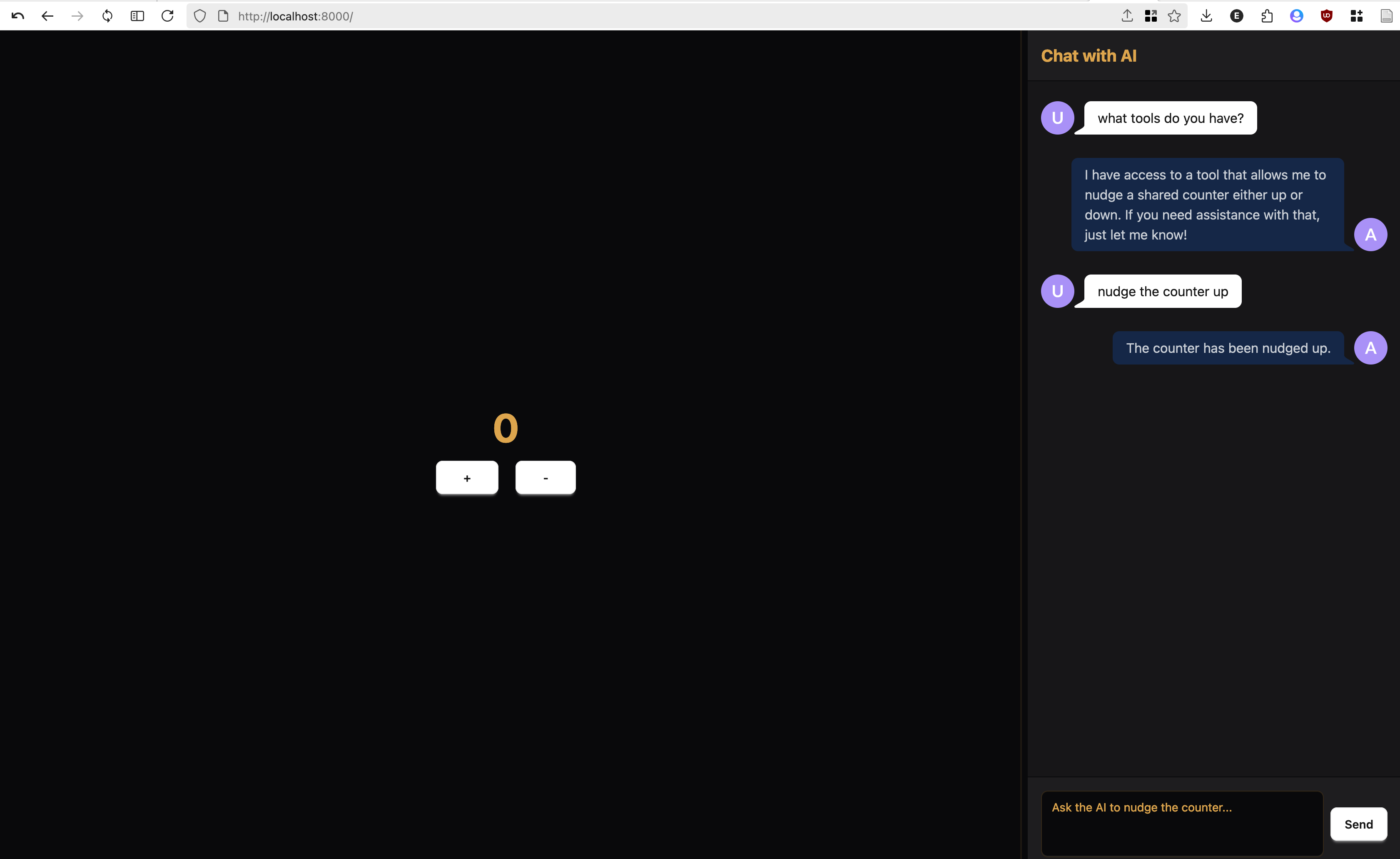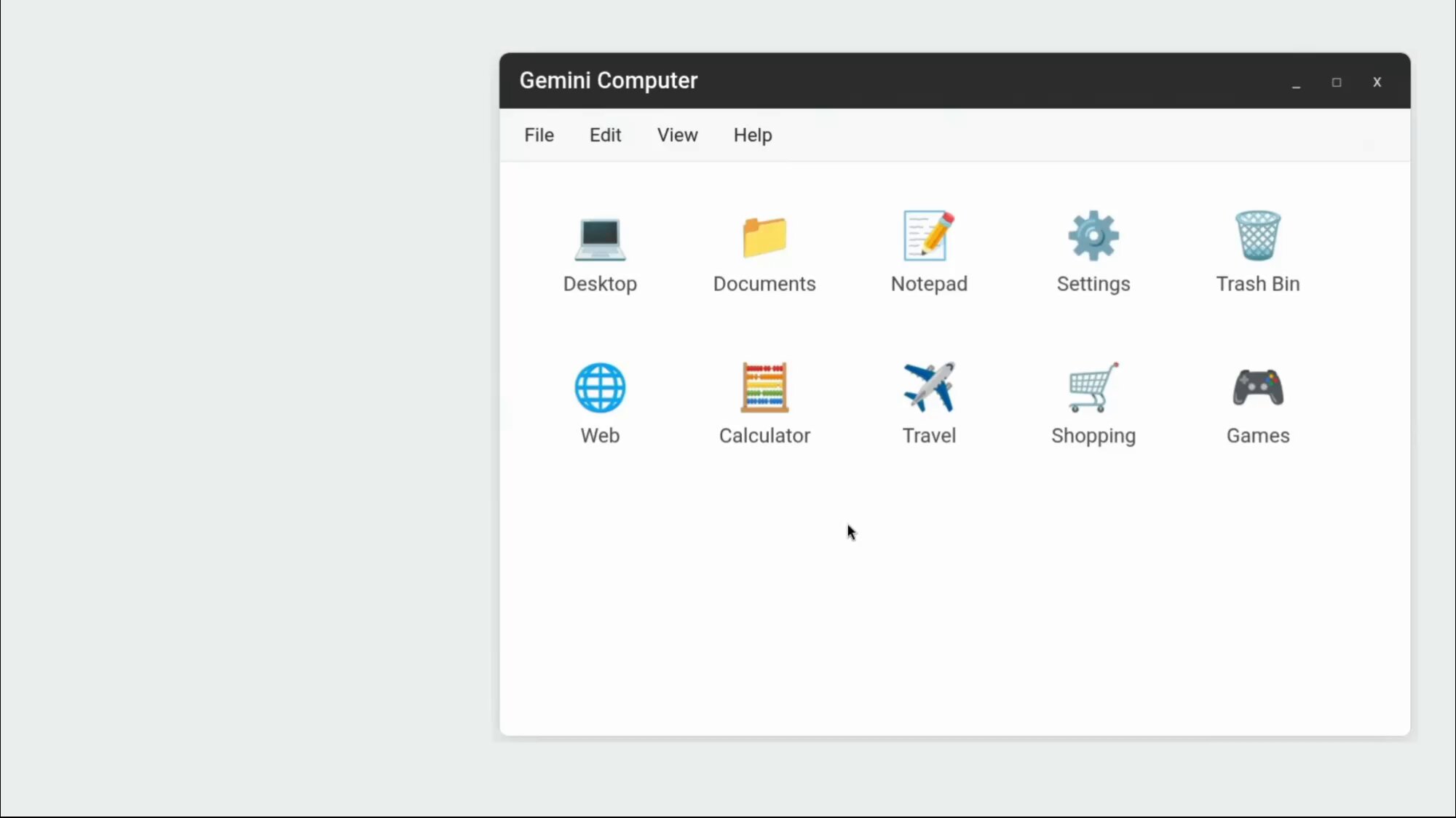✉️ Not subscribed yet? Subscribe to the Newsletter
Future of Coding Weekly 2025/06 Week 4
2025-06-23 11:22
🦅 Eagle Mode 🎥 This is not a Clojure talk 💾 Ultorg 2.0 Released
Two Minute Week
🗨️ Jasmine Otto:
Dusting off my Bitsy fork with simultaneous editing across clients. Right now I have Automerge imported and working. Except - while Bitsy is a tiny game engine, it's a massive project to refactor into ES6 modules, due to that Automerge dependency.
This week I got Bitsy's built-in icons working, and I've yanked all of the onclick bindings from inline HTML into a shim module. As I refactor out all of the global state leaks, I have discovered one actual cyclic dependency between modules. I bet I can fix this with an existing instance object.
Share Your Work
🗨️ Nilesh Trivedi:
I've been exploring combining Reactive UI components (those that separate the state, the methods to update the state, and computed values such as the UI), with the same methods given as tools to LLM-powered agent. The user can then either use the UI as normal or ask the AI to act on the state: with perfect fidelity between the two.
I want to see if there is an abstraction concise enough for such components to live on the server instead of the client to enable multiplayer realtime collaboration across many humans and agents. It ought to be possible to accomplish this with much less plumbing.

🗨️ guitarvydas:
FYI...
Prolog Related References
🗨️ guitarvydas: 🦅 Eagle Mode
brainstorming:
- A friend was fooling with a midi/mixer control surface as a layered interface to a bank of apps/subdirectories. A grid of buttons, push into one then get a sub-grid of buttons within it, or, open the app.
- IMO, software is just soft hardware. What ideas come to mind for simulating a Z controller before committing to hardware? It seems that an obvious choice might be to put a 2nd scroll bar next to the Y scroll bar. The 2nd scroll bar might be "Z"oom in/out and it might be shaped in a more triangular manner than just a rectangular movable thumb on a rectangular bar. In an orthogonal vein: Ivan Reese posted some interesting looking circular knob ideas.
- 2 sliders, one to control scrollable thing, one to control resolution of 1st slider.
- veering even further away from the original thread, there are ZUIs like EagleMode.
Homepage of Eagle Mode (eaglemode) - a zoomable user interface (ZUI) with file manager, file viewers, audio/video player, games, fractals, and C++ toolkit API.
🗨️ Jack Rusher: 🎥 This is not a Clojure talk - Jack Rusher | Craft 2025
My latest talk, given at Craft Conf in Budapest. There were some technical difficulties, but it should hopefully serve as a reasonable introduction to the virtues of interactive development in Clojure.

🗨️ Karl Toby Rosenberg:
TahDah: https://github.com/KTRosenberg/DrawTalking
A prototype user experience concept for building interactive worlds and telling stories at the same time by sketching and speaking
🗨️ Scott: 📝 The Moldy Cucumber Chronicles
I wrote a fun little post about something I've been playing around with with LLMs, how might programming change when LLMs can get what you mean without you getting it exactly right:
📝 The Moldy Cucumber Chronicles
or how I learned to stop worrying and love fuzzy vegetables

DevLog Together
🗨️ Ivan Reese:
I'm still thinking a lot about what a "point literal" or a "vec literal" means in the context of visual programming.
In text we have "string literal", it has a bunch of affordances. In visual/spatial/tangible/etc programming, we'd probably want other primitive types with their own set of affordances. So point and vec, obviously. I wonder what else we'd want, and how it would look and act.
Linking Together
🗨️ Ivan Reese:
News: Dark has run out of money and is going employee-owned, I guess? And they're going open source. Seems like making the very best of a bad situation. Kudos to them.
🗨️ Kartik Agaram:
I'm going to forever take the FoC podcast episode on Rules of Code as license to consider the law and philosophy in scope here. Here's a fantastic bit of writing, just in holding my debased attention span 40 years later: James Boyd White, "Law as rhetoric, rhetoric as law: The arts of cultural and communal life"
(A hack for sticking with it.)
🗨️ Nilesh Trivedi:
Dyad is a declarative physical modeling language that has a one-to-one mapping with GUI views. This gives a textual representation that is amenable to analysis and generation by generative AI and devops pipelines, while allowing the same artifact to be used in the graphical environment.
https://help.juliahub.com/dyad/dev/
🗨️ Mariano Guerra:
Ultorg is an efficient, spreadsheet-like UI for complex business data. Query and edit data across tables and relationships, without SQL or custom CRUD apps.
🗨️ Kartik Agaram:
A different take on s-expressions making them more.. visual?
🗨️ David Alan Hjelle: 🎥 Episode 158 - INTERCAL RIDES AGAIN - Restoring a Lost Compiler
The Advent of Computing podcast has an episode on Intercal — and apparently also resurrected (at some level) the original compiler (to run on x86).

🗨️ Konrad Hinsen: 🎙️ Samuel Arbesman on The Magic of Code - The Jim Rutt Show
A nice podcast episode with Jim Rutt inverviewing Sam Arbesman on his new book "The Magic of Code" (which is now on my reading list). A good reminder (for those who need it, perhaps not so much people here) that computing is not just utilitarian.
Since Sam is around here, some short feedback:
- It's weird to hear both of you dismissing APL as a mess not even worth learning, and then discussing computing as a tool for thought a few minutes later. The link between the topic should be obvious from just the title of Ken Iverson's Turing Award lecture, "Notation as a tool of thought:null:", which I definitely recommend everybody to read. APL was designed as a mathematical notation for algorithmic problems, and only later turned into an executable notation at IBM. It is certainly not, and was never meant to be, a language for writing large software systems. But for its intended problem domain, it still is a good choice.
- Programming languages not based on English are indeed rare, but there are a few interesting examples beyond just translating keywords. 文言 (wenyan) is based on classical Chinese that tries to incorporate even its grammar. Perligata similarly takes inspiration from Latin grammar to build a Perl-like language on something pretty close to Latin (though not being "good" Latin, neither in vocabulary nor grammar). For those who read French, the slides of a presentation by Baptiste Mélès say something about both these projects (I think the presentation was recorded, but I can't find it anywhere). Hedy by Felienne and coworkers is a very different take on this topic: a language meant to make programming accessible to people from various cultural backgrounds.
Jim talks with Samuel Arbesman about his book The Magic of Code: How Digital Language Created and Connects Our World—and Shapes Our Future.

🗨️ brett g porter:
Programming languages not based on English are indeed rare, but there are a few interesting examples beyond just translating keywords
Also Ramsey Nasser's Qalb
AI
🗨️ Nilesh Trivedi:
AI is a new kind of computer.
- A traditional computer processes structured data with deterministic instructions.
- AI processes unstructured data with natural-language nondeterministic instructions.
I like the simplicity of this framing.
But personally, I am more interested in unifying both these kind of computational work: Mathematical (precise & deterministic data structures and instructions) and human-media centric (language, image/audio/video etc) which approximate/ambiguous.
https://jeffhuber.substack.com/p/ai-is-a-new-computer
🗨️ Nilesh Trivedi:
Gemini Flash Lite generating UI on-the-fly:
🐦 Oriol Vinyals (@OriolVinyalsML) on X
Hello Gemini 2.5 Flash-Lite! So fast, it codes *each screen* on the fly (Neural OS concept :point_down:).
The frontier isn't always about large models and beating benchmarks. In this case, a super fast & good model can unlock drastic use cases.
Read more: https://t.co/kbkC8CtVYb

🗨️ Scott:
Have any of you here spent any time with MCPs at all?
I've just started building an MCP client into this app i'm working on, and it hit me that this could be what enables a lot more of end user modification of programs and a version of Malleable software...though not completely malleable. You don't have to interact with them through a conversational or agentic interface, you can just treat them like RPCs, and if you set up standardized integration points into your application, users can build all types of customizations for at the very least the objects or metaphors within your system
👨🏽💻 By 🐘 @[email protected] 🐦 @warianoguerra
💬 Not a member yet? Check the Future of Coding Community
✉️ Not subscribed yet? Subscribe to the Newsletter / Archive / RSS
🎙️ Prefer podcasts? check the Future of Coding Podcast